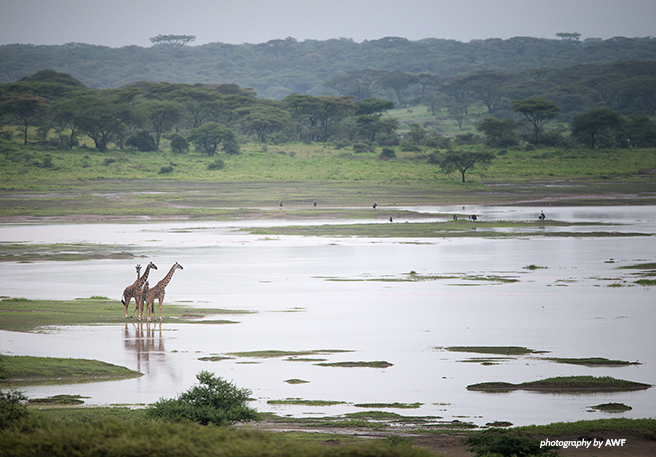Looking Ahead to the World Conservation Congress

As storm clouds loom on the horizon, the global conservation community comes together in Hawaii for the International Union for Conservation of Nature’s (IUCN) World Conservation Congress (WCC). Our planet is at the crossroads. Where will we go from here? Is our chosen development path one that will lead to sustainability, prosperity and inclusive and green growth? Will we find ways to ensure communities are resilient and ecosystems restored?
This gathering of over 6,000 presents an opportunity to check progress along the road to a sustainable future. On the agenda of the forum—which will be a knowledge marketplace of more than 600 events, with voices from across the world—are issues ranging from managing and financing protected areas, ecosystem based approaches to climate adaptation, techniques for prioritizing and delivering forest landscape restoration, and the challenges of managing the impact of large scale infrastructure development on biodiversity.
And while the signing of the Paris Accord for climate change and the setting of the Sustainable Development Goals made 2015 a historic year for conservation, the mood among conservationists is that now is the time for action, not words. Collapsing ecosystems, unprecedented rates of extinction and a climate crisis are all symptoms of a world out of balance. Yet solutions are within our reach.
With its landscape scale approach and experience working to reconcile the needs of wildlife with human demands for land and resources, AWF’s work is more relevant than ever.
A holistic approach to conservation
Working at a landscape scale means considering not just protected areas, but the land that extends beyond them as well. It means accounting for not only those features wildlife requires to survive, but the features that provide for the livelihood and wellbeing of local communities too. As such, this approach cuts across issues of water, forests, business and food security—all of which will be front and center at WCC.
Expanding the strategies AWF has honed through decades of work in its priority landscapes necessitates working with local, national and regional partners and governments to influence the policies and programs determining decisions around land and resource use. AWF’s African-led advocacy strategy does just that, ensuring that wildlife and wild lands become an integral part of the continent’s development vision.
Setting the tone for future progress
The Congress Resolutions, decided by the uniquely blended Membership of IUCN, provide an opportunity to shape the global agenda for conservation. Through the two-chamber structure of decision-making, NGOs and governments both have power to shape IUCN policy on topical issues such as wildlife trafficking, biodiversity offsets, industrial activities in protected areas and global standards for sustainable tourism. These decisions act as a touchstone for the conservation community and guide global policy agendas for decades to come.
Conserving representative, viable and ecologically functional populations of species in their natural habitats in Africa is the work of many hands, hearts and minds. AWF’s WCC presentations will showcase field experience in countering land degradation in areas of conservation importance, delivering inclusive green growth strategies through partnership approaches, and managing the impacts of infrastructure developments on conservation. The team is looking forward to sharing what we have learned with peers and actively shaping of the global conservation agenda for years to come through our participation in the Congress.